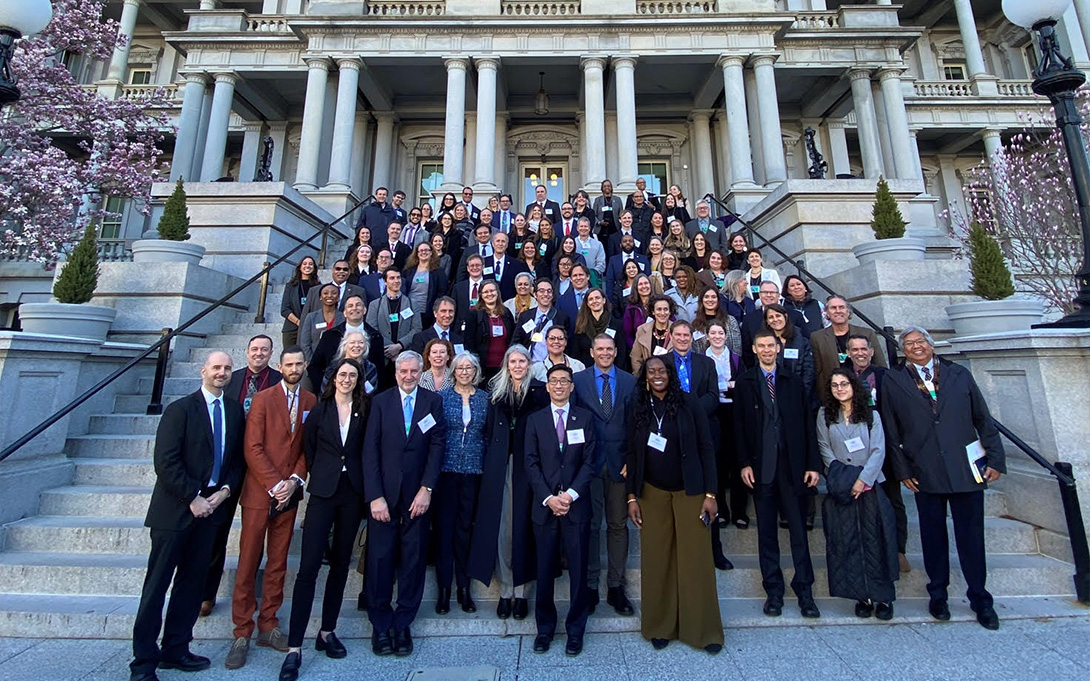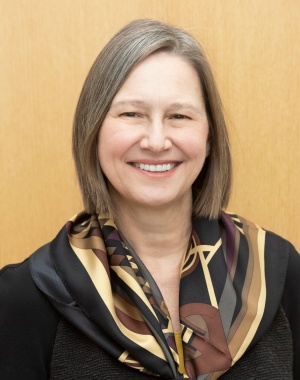
Jennifer Haverkamp, professor of practice at the Ford School and director of the Graham Sustainability Institute, was among a group of scholars who recently met at the White House to discuss the role of educational institutions in creating and sharing climate change solutions.
The conference, the White House Forum on Campus and Community-Scale Climate Change Solutions, was hosted by the White House Office of Science and Technology Policy (OSTP) and the University of Washington. Over 800 government officials and scholars representing diverse colleges, universities, and workforce development institutions came from across the country or joined virtually to leverage the capabilities of their institutions to advance climate solutions in surrounding communities.
"I was delighted to represent the University of Michigan at the recent White House Forum to exchange ideas and lessons learned with colleagues from such a wide range of institutions. U-M is now a leader in the campus energy transition, which requires us to share our experiences and ideas with other campuses, and – just as important – to learn from them."
The forum covered issues like trust between campus and communities, prioritizing underserved communities, providing students with the knowledge and skills to lead clean industries, enabling campuses to provide climate services to surrounding areas, and partnering with federal agencies. Panelists shared success stories and innovative ideas from their campuses and learned about new opportunities created by the Bipartisan Infrastructure Law and Inflation Reduction Act.
As a panelist, Haverkamp discussed her definition of campus sustainability, which was shaped by her experience as co-chair of the U-M President's Commission on Carbon Neutrality.
“We had to come up with solutions that were scalable and transferable. And I think that is the definition of campus sustainability. Why do it just for your own campus?” she explained. “Campus sustainability is a process. It isn't something you achieve at some point. Every wave of students who come through has to be brought into that new culture. There's a role for every member of the campus community in addressing sustainability. It's the faculty. It's the staff. It's the students. We have to do it together. It's an ongoing process.”
Throughout the panel, Haverkamp highlighted some steps that the University has already taken to address climate change and sustainability.
“Speaking about campus culture, it's important to have demonstrable examples of how you're going toward greater sustainability and greenhouse gas reduction,” she said. “And to that end, one of our goals, which is to have all of our purchased electricity carbon neutral by 2025, we have half of that already through a purchase through the big utility. And we've recently announced another RFP to get there.”
Haverkamp concluded by recommending strategies for other campuses, which have proven to be effective at the University.
“One of the things that we've learned is that financial incentives can be effective. And so to help our schools and colleges become more energy efficient, we've created a Revolving Energy Fund and put 25 million into that,” she said. “And so each school and college, if they come up with energy-efficiency projects, those are funded out of that fund. And then their cost reductions go back in to replenish it over time.”
“The other important thing to do is to make sure that you are encouraging these creative smart students that we all have to go forward with their own ideas,” she continued. “Our medical school and the hospital are half of our greenhouse gas emissions for the Ann Arbor campus. The students have created something called White Coats for Planetary Health. And that's a project where they're developing curricular material for every organ system across the body, to bring environmental health into that.”
Watch the White House Forum on Campus and Community-Scale Climate Change Solutions.
